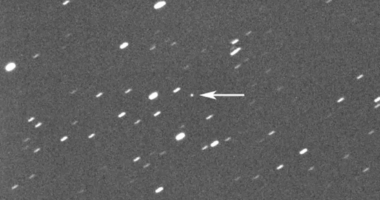The Centre for Mathematics, Science and Technology Education in Africa (CEMASTEA) has launched an outreach program to promote STEM education in schools. The initiative aims to motivate learners to excel in STEM subjects, empower teachers to deliver effective instruction, and simplify concepts in Physics, Biology, Chemistry, Mathematics, robotics, and coding. The program provides teachers with skills to use locally available resources to develop models that aid in practical learning. CEMASTEA targets at least 50 schools across the country this financial year. The hands-on activities with students will enable teachers to unpack concepts in easy and practical ways, connecting what they learn in class to the outside world and the opportunities available if they take up STEM subjects. The program has shown positive results by wooing back students who had opted to drop some of the science subjects. The approach is set to transform how the subjects are taught in secondary schools.
CEMASTEA Launches Programme to Boost STEM Education
The Centre for Mathematics, Science and Technology Education in Africa (CEMASTEA) has unveiled a new initiative aimed at promoting Science, Technology, Engineering, and Mathematics (STEM) education in schools. The mentorship and outreach program is designed to motivate learners to excel in STEM subjects, as well as to empower teachers to deliver effective instruction.
CEMASTEA National Trainer Martin Mungai explained that the initiative was prompted by gaps in teaching methodologies that were identified through working with teachers. The program is intended to address the lack of a practical approach to teaching STEM subjects, by exposing teachers to various models and resources that can be used to teach concepts in a more practical manner. The program focuses on simplifying various concepts in Physics, Biology, Chemistry, Mathematics, robotics and coding, Climate Change and Education for Sustainable Development (ESD).
CEMASTEA is providing teachers with skills to use locally available resources to develop these models, and to aid in practical learning. The goal is to renew interest in STEM subjects, by demonstrating their importance to students and encouraging as many students as possible to pursue them. Mungai stressed the importance of embracing STEM subjects in the development of the country, as failing to do so could hinder the country’s progress in comparison to western countries.
The outreach activities at Ken Obura Secondary School in Kisumu aim to enable teachers to unpack concepts in easy and practical ways. They also connect what students learn in class to the outside world and the opportunities available if they take up STEM subjects. The program targets to reach at least 50 schools across the country this financial year. CEMASTEA has been inviting teachers and students to their innovative laboratories in Nairobi, but most schools are limited with resources and are therefore not able to come.
In conclusion, CEMASTEA’s mentorship and outreach program is a step towards promoting STEM education in Africa. By equipping teachers with the necessary skills to teach these subjects practically, the initiative aims to renew interest in STEM subjects and inspire students to pursue them. This program is critical to empowering future generations with the knowledge and skills necessary to contribute to the development and industrialization agenda of the country.
Programme to Boost STEM Education Shows Positive Results
The Centre for Mathematics, Science and Technology Education in Africa (CEMASTEA) recently launched an outreach program to promote Science, Technology, Engineering, and Mathematics (STEM) education. The program aimed to motivate learners to excel in these subjects and empower teachers to deliver effective instruction. During a recent outreach exercise, CEMASTEA National Trainer Martin Mungai urged teachers to be innovative and take advantage of the skills acquired through the programme to boost performance in the subjects.
Positive Results from the Programme
Mungai also challenged teachers to create a positive attitude amongst learners, particularly in subjects like chemistry and physics, by demonstrating to them why they need to pursue them for future possibilities. He cited the exercise at St. John’s Christostom Secondary School, Bishop Abiero Shauri Moyo Secondary School, and Lions Day Secondary School as an example of how the program had wooed back students who had opted to drop some of the science subjects. He encouraged teachers to inspire hope and encourage more learners to take up STEM subjects.
Speaking during the same occasion, Kisumu Central Sub-County Director of Education Mr. Charles Ang’iela said the outreach programme was critical in reigniting interest in science and mathematics. Through the programme, more teachers and students will benefit from skills and practical knowledge to boost performance.
Improved Learning Techniques and Simplified Concepts
The outreach programme provides teachers with skills to use locally available resources to develop models that aid in practical learning. It also simplifies concepts in Physics, Biology, Chemistry, Mathematics, robotics, and coding, Climate Change, and Education for Sustainable Development (ESD). The approach is set to transform how the subjects are taught in secondary schools, according to Elvira Gero, a Mathematics and Physics teacher at Bishop Abiero Shauri Moyo Secondary School. She noted that the practical approach makes it easier for students to grasp concepts, which would otherwise be difficult to understand in theory.
The programme’s focus on using locally available resources to develop teaching aids to demystify concepts in science and mathematics will go a long way in boosting performance in the subjects. The exposure given to students will help transform their attitude towards the subjects since some of the concepts that previously appeared challenging have been simplified.
Outreach Programme Has a Ripple Effect on Performance
The outreach programme targets at least 50 schools across the country this financial year. According to Mungai, the programme’s hands-on activities with students will enable teachers to unpack concepts in easy and practical ways, connecting what they learn in class to the outside world and the opportunities available if they take up STEM subjects. CEMASTEA has been inviting teachers and students to their innovative laboratories in Nairobi, but most schools are limited with resources and are therefore not able to come. The outreach programme will have a ripple effect on performance in STEM subjects and help the country advance at the same pace as countries in the west.
In conclusion, CEMASTEA’s outreach programme is a critical step towards promoting STEM education in Africa. The practical approach to teaching STEM subjects is set to transform how these subjects are taught in secondary schools. By demystifying challenging concepts and using locally available resources to develop teaching aids, the programme aims to renew interest in STEM subjects and inspire students to pursue them.
Don’t miss interesting posts on Famousbio









